
Gum Disease
Gingivitis, an inflammation of the gums, is the most common and moderate form of gum disease. It is characterized by swelling, increased sensitivity and redness of the gums. It often goes unnoticed in mild cases but it can lead to severe damage to the surrounding tissue — including teeth and jawbones — if it is left untreated. Poor oral hygiene can result in the build-up of plaque on our teeth. Plaque also contains different types of bacteria and other irritating components. Its accumulation causes irritated gums, which results in the breakdown of gum tissue in severe cases. Progressive deterioration of the gums increases the distance between gum tissue and teeth, and makes teeth weak. Regular visits to the dentist and good oral hygiene through daily brushing can ensure that your gums stay healthy.
- Important notification about information and brand names used in this slideshow!
- Photo courtesy of Tess Heder by Flickr : www.flickr.com/photos/emuse/668259837/
- www.e-deneducation.com/blog/view/15-7-serious-diseases-linked-to-poor-oral-hygiene
- http://www.lef.org/magazine/mag2003/aug2003_report_dental_01.htm
- http://www.mayoclinic.com/health/heart-disease-prevention/AN02102
- http://www.prevention.com/health/health-concerns/gum-disease-can-cause-serious-illness

Heart Problems
Research suggests a relationship between gum disease and heart problems, and there is even a possibility that bacteria from infected gums could enter the bloodstream — as inflamed gums do bleed. An increased bacterial concentration in the blood can result in the build-up of plaque within the blood vessels. This build-up results in narrowed blood vessels. In the long run, this can cause various heart problems. Research has also found some evidence that suggests that people with gum problems have increased levels of C-reactive protein. This protein is one of the indicators of an increased risk of heart attack.
- Important notification about information and brand names used in this slideshow!
- Photo courtesy of oskar karlin by Flickr : www.flickr.com/photos/oskarlin/47844572/
- www.mayoclinic.com/health/heart-disease-prevention/AN02102
- http://www.e-deneducation.com/blog/view/15-7-serious-diseases-linked-to-poor-oral-hygiene
- http://cro.sagepub.com/content/15/6/403.full

Stroke
There are numerous different causes of stroke, including the blockage of blood vessels inside the brain. We know there are lots of bacteria present in our mouth and digestive system all the time. Having poor oral hygiene can result in gum disease and that, in turn, can lead to the bacteria from the plaque on our teeth entering the bloodstream. The increased levels of gum disease bacteria have been found to trigger the formation of small clots within the blood vessels. These clots can get clogged up in the blood vessels inside the brain and then potentially cause a stroke.
- Important notification about information and brand names used in this slideshow!
- Photo courtesy of Berkeley T. Compton by Flickr : www.flickr.com/photos/41260125@N05/6173141647/
- stroke.ahajournals.org/content/35/2/496.short
- http://stroke.ahajournals.org/content/44/4/1026.abstract

Dementia
Previously, the view that poor oral health could cause any brain dysfunction was not fully entertained by the medical community. Many medical professionals argued that dementia patients could have bad oral hygiene because of their forgetfulness. But, recently a study from the University of Lancashire (UK) has reported that they found particular bacteria (Porphyromonas gingivalis) in brain tissue of people suffering from dementia and Alzheimer’s disease. This bacterium is found in the oral cavity and digestive tract and is known mainly to cause gum diseases. This bacterium can survive in the presence of high concentrations of antibiotics. Each time it invades the blood stream it can trigger a certain exaggerated immune response. This exaggerated immune response can cause damage to neurons and result in memory loss or confusion.
- Important notification about information and brand names used in this slideshow!
- Photo courtesy of The home of Fixers by Flickr : www.flickr.com/photos/fixersuk/8550606469/
- http://www.medicalnewstoday.com/articles/264164.php http://www.webmd.boots.com/oral-health/news/20130731/poor-dental-health-dementia
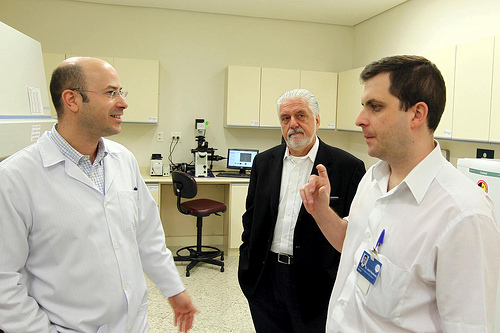
Pancreatic Cancer
At least 8000 people in the UK are diagnosed with pancreatic cancer each year, making it the ninth most common cancer there. A study published in the journal of the National Cancer Institute in 2007 provided the first strong evidence that diseases of teeth, gum and oral cavity can increase the risk of pancreatic cancer. The study was carried out at the Harvard School of Public Health in Boston. This study suggests that people with periodontal disease are at a 64% increased risk of developing pancreatic cancer sometime in their lives. This risk is the highest in people who have lost one or more of their teeth due to bad oral hygiene or oral infection. This finding is also statistically supported by another study conducted by Stolzenberg-Solomon et al (2003).
- Important notification about information and brand names used in this slideshow!
- Photo courtesy of Fotos GOVBA by Flickr : www.flickr.com/photos/agecombahia/6069103427/
- http://www.nhs.uk/conditions/cancer-of-the-pancreas/Pages/Introduction.aspx http://www.medicalnewstoday.com/articles/60995.php
- http://ajcn.nutrition.org/content/78/1/176.full
- http://jnci.oxfordjournals.org/content/99/2/171.short

Obstructive Pulmonary Disease (COPD)
COPD is one of the four top causes of death in the US, and it is clearly established that oral hygiene has a direct effect on a patient’s respiratory system. Poor oral hygiene can easily cause a lung infection, especially in high-risk people, including elderly, terminally ill patients and immunocompromised individuals. Bacteria specific to the oral cavity have been found in the lungs of patients affected with different respiratory infections (including COPD). The mechanism of transportation of respiratory pathogens can be through normal breathing, but mostly it is through blood. The process through which the inflammation caused by dental plaque results in the breakdown of connective tissue in the oral cavity is the same as in emphysema. This similarity in both different medical conditions suggests that periodontal bacteria might also be a cause of COPD.
- Important notification about information and brand names used in this slideshow!
- Photo courtesy of Kristian Bjornard by Flickr : www.flickr.com/photos/bjornmeansbear/720927442/
- cda-adc.ca/jcda/vol-68/issue-6/340.pdf
- http://www.jpaget.nhs.uk/documents/Patients_and_Visitors/information_leaflets/Head_and_Neck___Respiratory/HE_7_COPD_and_Mouthcare_web_v2.pdf

Bad Teeth Can Affect Your Fertility
There could be roughly 700 different types of bacteria that can enter into your bloodstream through infected gums or other periodontal diseases. Women with gum diseases can take longer to get pregnant. The exact mechanism of action is not known, but the inflammatory process in the oral cavity (caused by periodontal diseases) can trigger a continuous and exaggerated immune response which can affect the inner lining of the womb. Bacteriospermia is a condition in which men have bacteria in their semen. This condition along with other conditions has been found responsible for male infertility, and the same periodontal bacteria have been found the semen of men with periodontal diseases.
- Important notification about information and brand names used in this slideshow!
- Photo courtesy of Jim Winstead by Flickr : www.flickr.com/photos/jimwinstead/2662424776/
- www.dailymail.co.uk/health/article-2011424/Trying-baby-Brushing-teeth-help-conceive-months-earlier.html
- http://infertility.about.com/od/alternativetreatments/ss/to_increase_fertility_male_9.htm
- http://www.bbc.co.uk/news/health-14026830

Rheumatoid Arthritis
This is an inflammatory condition and is characterized by painful, swollen and stiff joints. It is an autoimmune disease, which means that it occurs when the immune system starts working against its own body. The major cause of this disease is considered to be genetic inheritance. Apart from that, environmental factors which could trigger the onset of disease cannot be ruled out. As this disease is more common in females than in men, scientists also suggest that hormones might play some role. Persistent irritation in the oral cavity mostly caused by P.gingivalis can produce citrullinated proteins and auto-antigens, which promote autoimmune function. This very same factor could be at play in the case of rheumatoid arthritis.
- Important notification about information and brand names used in this slideshow!
- Photo courtesy of handarmdoc by Flickr : www.flickr.com/photos/handarmdoc/9212534322/
- www.gumsandjoints.com/
- http://www.healthline.com/health-news/arthritis-gum-disease-bacteria-worsens-rheumatoid-arthritis-091713
- http://www.arthritisselfmanagement.com/condition/rheumatoid/rheumatoid-arthritis-and-gum-disease/?page=all
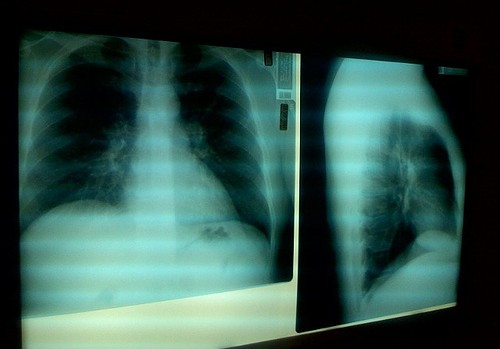
Pneumonia
Pneumonia ranked number eight among the top causes of death in the US during 2008. Our oral cavity harbors several different types and strains of bacteria. The bacteria known to cause pneumonia (Haemophilus influenza, Staphylococcus aureus, Enterobacter and Streptococcus Pneumoniae) have been found in both normal oral secretions and the transtracheal aspirates from the lungs with pneumonia. Moreover, the enzymes released as a result of inflammation in the mouth cavity (due to poor hygiene), make the lining of our respiratory tract more habitable for the bacteria. These two factors very strongly support the fact that poor oral hygiene and the presence of bacteria in the oral cavity can significantly increase the risk of pneumonia, especially in vulnerable groups of people.
- Important notification about information and brand names used in this slideshow!
- Photo courtesy of scott feldstein by Flickr : www.flickr.com/photos/scottfeldstein/1428620295/
- http://www.dimensionsofdentalhygiene.com/ddhright.aspx?id=6170 http://www.ncbi.nlm.nih.gov/pmc/articles/PMC3213714/ http://www.med.or.jp/english/journal/pdf/2011_01/039_043.pdf
- http://www.medwirenews.com/43/104555/Infectious_Diseases/Oral_hygiene_boost_could_reduce_elderly_pneumonia_risk_.html
- http://cid.oxfordjournals.org/content/40/12/1807.long

Poor Oral Hygiene May Worsen Diabetes Symptoms
Most of us are aware that diabetes effects our eyes, kidneys, nerves and some other important organs in our body. Diabetic patients are also at an increased risk of periodontal diseases. Diabetes impairs the functioning of white blood cells, hence weakening the body’s defense against high bacterial concentrations in the oral cavity. The risk of developing such disease is even higher in smokers. Researchers have found that the existence of such an inflammatory condition along with diabetes, can make it even harder to keep blood glucose levels under control. When sugar levels are not under control, a high level of sugar in saliva can also promote the colonization of bacteria and fungi in the oral cavity.
- Important notification about information and brand names used in this slideshow!
- Photo courtesy of grafixtek by Flickr : www.flickr.com/photos/shuttercat7/544444923/
- diabetes.webmd.com/dental-health-dental-care-diabetes
- http://www.google.com.pk/url?sa=t&rct=j&q=&esrc=s&frm=1&source=web&cd=2&ved=0CFQQFjAB&url=http%3A%2F%2Fwww.ada.org%2Fsections%2FpublicResources%2Fpdfs%2Fpatient_18.pdf&ei=AJ5nUq3lKuzY7AaCxoDABA&usg=AFQjCNGbzaDgGTja5QgwOzsAlGj-kwMvcQ&sig2=mx1Fc88Puxcesar2CD2QUg&bvm=bv.55123115,d.bGE



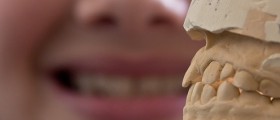



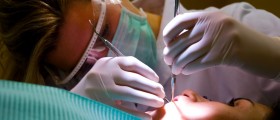
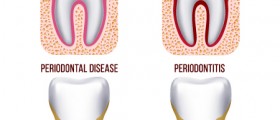





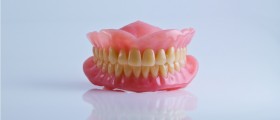
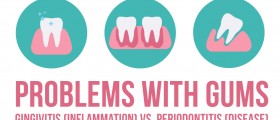
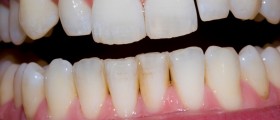

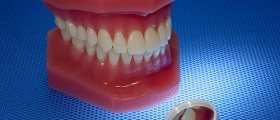
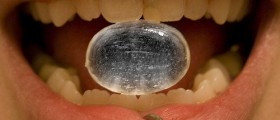
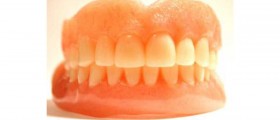
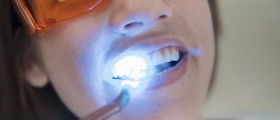




Your thoughts on this
Loading...